Interview with Remember The Wild
“We are scientists, we are storytellers, and we are supporters. By trialling and honing our methods of connecting people with nature we hope to do some serious good for our very precious planet.“
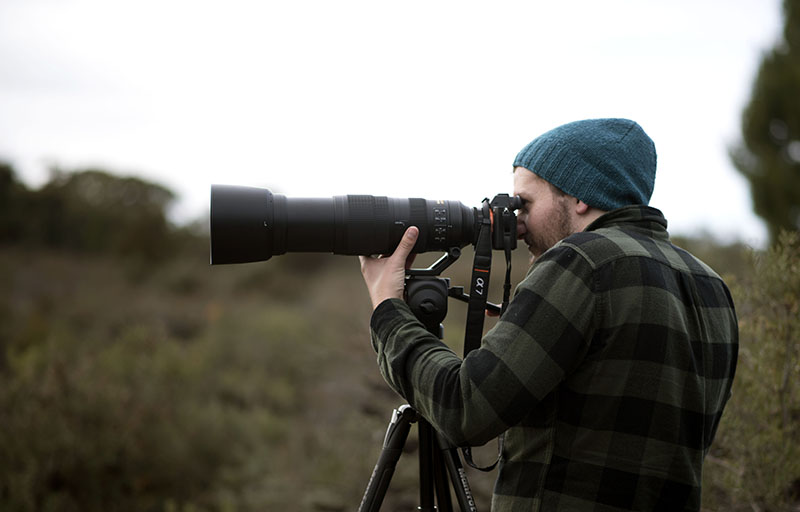
Chris out in the field
© Remember The Wild
How did Remember The Wild come about?
Remember The Wild began life as Wild Melbourne back in 2013. During my undergraduate degree at Monash University I became determined to rectify what I saw as a gap in the conservation world: a lack of non-profit (or governmental) effort targeted at connecting the public with nature. We cannot focus only on symptoms (e.g. conserving endangered species) and neglect the root cause of the disease (human values and behaviour). Equally passionate people helped me launch the organisation with the mission of connecting people with the natural world.
Why Wild Melbourne? Well, we believed (and still do) that to be local is to be relevant, and reminding people of the relevance of nature to their daily lives was a key objective of ours. Additionally, we believe that people living in our city often think of nature as something removed from humanity. We live in this little bubble called society and nature is something that exists out there in the ‘wild’. Yet this is a delusion: we have nature in our city, and the nature beyond its borders is intimately linked to our lives within them.
Our aim was always to grow beyond Victoria and launch a national entity. Remember The Wild is now our overarching organisation – a registered charity, the first in Australia to focus on nature connection, and one we hope to grow into our country’s leading authority on the issue. We see our role as multifaceted. We are scientists, we are storytellers, and we are supporters. By trialling and honing our methods of connecting people with nature we hope to do some serious good for our very precious planet.
For many of us at Remember The Wild, this goal is a goal for life, and we welcome others who feel the same.
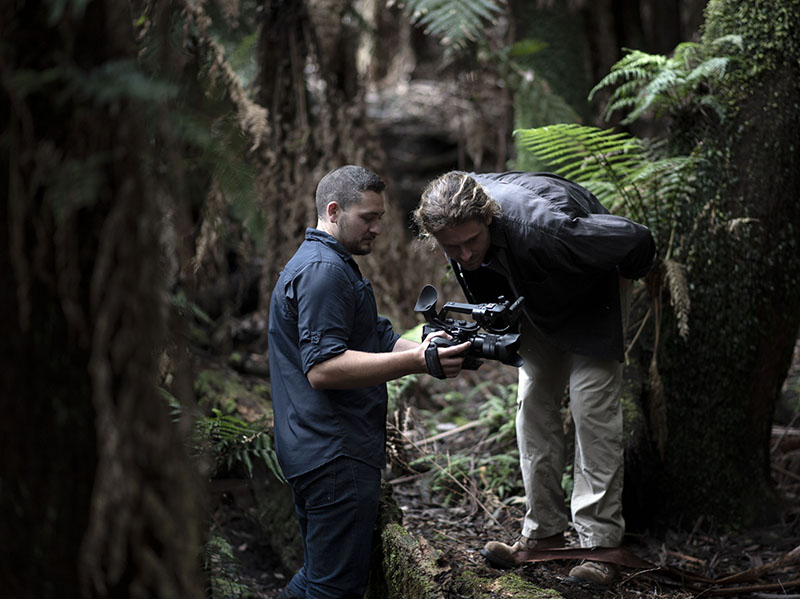
Chris out in the field
© Remember the Wild
What are the most successful strategies you have put in place in order to expose city dwellers to nature in an attempt to reconnect them to it and ultimately, get them to care?
I think we’re really building towards this as an organisation. Our knowledge of behaviour change is growing pretty rapidly and we are trying more and more things in the space. One new initiative we are just getting off the ground is called Connected to Port Phillip.
Heaps – and I mean heaps – of people live around our Bay down here in Melbourne. We love our Bay but we’re also Australia’s fastest growing city and that, combined with environmental issues such as climate change, means we are going to be putting more and more pressure on this amazing part of Victoria. We need to protect our Bay for another day, and that’s on all of us.
Our Connected to Port Phillip initiative is all about inspiring people to consider the Bay in their daily lives. Because we are connected! What we do all the way north on Mt Macedon will eventually be felt in Port Phillip’s waters. To this end we are teaming up with the Bay’s many stakeholders in the environmental, cultural, and recreational space to provide them with tailored resources for broadscale education and engagement. Further more, with our Connected to Port Phillip initiative, we aim to inspire new and stronger connections with this extraordinary ecosystem and support those who work hard to look after it.
We hope to learn a lot over the next two years as we grow this initiative and test out how best to connect Victorians with this very special bit of nature.
How do we sustain long lasting behavioural shifts?
That’s a biggie!
Human behaviour is complex (well… most of the time…). If we want to influence a behaviour we need to understand the underlying drivers of that behaviour. These might be internal – such as your attitudes, values, or whether you’re hungry or you recently woke up from a nap – or external – such as social norms, workplace culture, speeding fines and interest rates.
In the context of desiring widespread and long-lasting environmentally responsible behaviours, we need to consider both the internal and external drivers of those behaviours. For us at Remember The Wild, we focus a lot on the internal, but it’s all connected.
How can we encourage members of our community to appreciate their environment more? If we facilitate individual relationships with nature, maybe people will find their own motives for doing the right thing. Afterall, there is no one-size-fits-all approach to connecting with nature. We cannot force a worldview on people but we can arm them with knowledge so they see more than they did yesterday, and we can inspire them to spend more time in nature so they get a chance to take a good look.
In the medical world the practice of using storytelling to communicate messages and promote positive behaviour change is well documented. Consider the power a short film about a woman with lung cancer might have on a young mother being encouraged to quit smoking. This young mother is watching a character waste away in a hospital bed, leaving her young children to grow up without her. Maybe there is an alternative ending to the film, one where the character quits smoking and it’s the hardest thing she’s ever done but hey, it was definitely worth it!
These kinds of narrative interventions can be profoundly influential. Humans are storytelling animals after all. We don’t see the world in ones and zeros, we understand it through sequences of images – narratives – that play out in our minds. Stories pull on the emotional levers in our brains and emotion is one of the great drivers of behaviour. At Remember The Wild we embrace this reality and that is why storytelling is at the heart of what we do.

Cathy our social media manager
© Remember The Wild
Conservation discussions should focus on exposing opportunities rather than difficulties according to research. Why do optimistic stories get people to care about nature? What is it about this new narrative?
Negativity turns most people off. It can be useful to play the doomsday card to die-hard supporters and energise them to act or donate, but it rarely attracts new audiences (flies and honey, right?).
While we need to be careful not to sugar-coat the reality of our planet’s environmental crisis, we must provide people with hope: after all, no one is going to turn up to fight for a lost cause, and you could forgive the public for viewing things like climate change in this light. Empowering people is vital.
One explanation (that I particularly like) for why this is the case follows thusly: humans have evolved to manipulate their environment. We are the great participators, as being active agents in our surroundings often meant the difference between starving to death and having many, many children. In other words, we like to be in control. Alongside this lust for regulating our world is the fact that we are very cognitive creatures. We’re always thinking, thinking, thinking: Occupying a world part physical, part mental.
So, let’s consider what happens when an animal finds itself in an uncomfortable environment: It leaves. Well, placing members of our brainy species in a mental scenario where they have no control over the world they live in is a sure-fire way to get them to leave – or in this case – mentally check out. Inundate people with information on how the world is falling apart and how our problems are all so big and all so unstoppable and you’re likely to achieve the above pretty quickly.
Give them hope and the opportunity to participate, on the other hand, and you might be surprised.
The connection between child development and the outdoors can be seen clearly in Scandinavian educational systems. There’s even a word in Norwegian for it – friluftsliv. How do we put nature at the heart of our educational system in Australia and why should we?
This is a really important question and one that is gaining increasing attention. There are some great people working in this space who know far more than I do, but I would be confident advocating for more outdoor learning. Outdoor classrooms, or learning spaces, are a great way to provide children with daily exposure to nature and from what I understand they can improve concentration and learning outcomes.
We may not want to spend the day learning outside if it is raining or extremely hot, but on mild days kids should be outside more than in. This, of course, is not the current norm and instead the lives of children centre around indoor settings and screens. We are depriving them of so many benefits and, according to the science, pushing them more and more into a life of anxiety, depression, ADHD, and obesity. This is not a norm worth continuing with.
Perhaps one day we will find it odd when we ask our kids “how was school?” and they tell us they had to spend almost the entire day indoors, cooped up in a classroom!
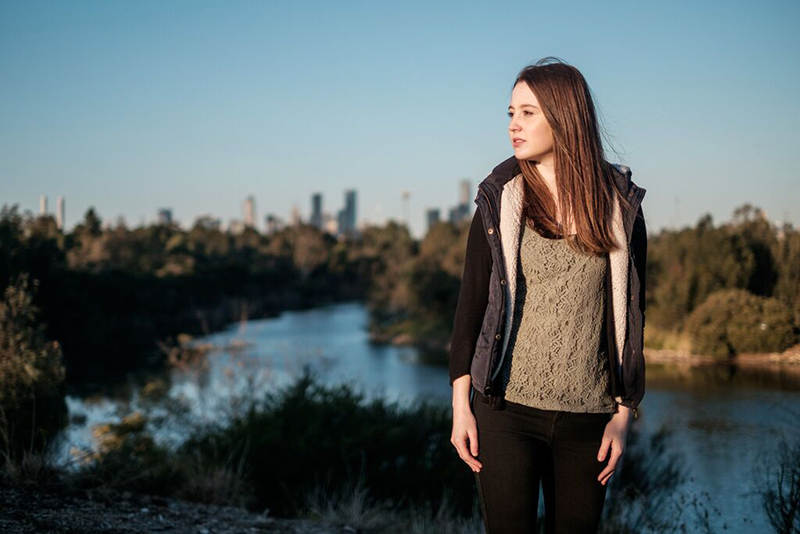
Rachel our publications manager
© Remember The Wild
How do we balance the needs of human beings and the natural world?
The needs of human beings are as linked to nature as my web browser is to the internet. It is fundamental and immutable. Hence, when we erode the ‘needs’ of nature (ecosystem services, hydrological cycles, wildlife habitat, etc.) we too are diminished. I think the sooner we awaken to the fact that we need – really need – the natural world in order to be happy, healthy, and extant in coming centuries, the sooner we can have this conversation in earnest.
Once we, as a community, accept that our own needs are dependent on nature we can begin to discuss things in greater depth. For while we need the natural world, our relationship with it is by no means set in stone. Accepting that change is inevitable and that the world of the future will look very different to the world of today, we must decide what direction we want that change to take. We will be increasingly required to contemplate what values we wish to preserve and cultivate in the environments in which we live. What services do we prioritise? What intrinsic qualities can we identify and maintain?
Things will not stay the same, nor can they be returned to some arbitrary point in the earth’s history. We need to embrace our intimate connections with the natural world – with trees and streams and butterflies, and with hurricanes and fires and malaria – so that we might reckon with the future racing towards us. Because ultimately this is all about balancing our needs. Nature, in whatever degraded future form, will continue without us. But in eroding the earth’s ecosystems now and in the coming decades, what we really fail to balance is our wants for today with our needs of tomorrow.
In our previous interview, Chris Bath mentions the disconnect people can have with words such as “conservation” and “biodiversity”. What words should we be using?
I think there is something to this. These terms and their relatives really can ‘turn people off’ and I think there are a few different reasons why this might happen.
For one, words like “biodiversity” really are jargon words. This word may have found itself more in the mainstream of culture than a lot of other terms in the biological sciences, but most people still don’t really understand the meaning behind it. On some level they probably figure it means something along the lines of “animals and plants and stuff” but there is an air of ambiguity and I think this matters: a lack of clarity will very quickly lose a person’s attention. Previously, I have been a big user of this word in talks to lay-audiences and I’ve really started questioning if I should continue that practice. I think people may respond more to words and phrases like “animal and plant life”, “the diversity of life”, and even “the amount of plants and animals”. These may sound less exact compared with “biodiversity”, but in contrast to this word they may actually paint the picture we are intending.
A second reason I think these terms fall on deaf ears is that they are so heavily laden with various political connotations. The environment has become an incredibly politicised concept in Australia and abroad and talk of conserving native biodiversity is to many ears just a tired old trope: another agenda being pushed and another argument waiting to happen. Additionally, people have been primed to associate these words with the doomsday message they’ve increasingly heard over the past few decades from (rightfully) concerned interest groups. Unfortunately, I feel the general populace has been overwhelmed with this ineffectual form of messaging and so these words have become a trigger to switch off.
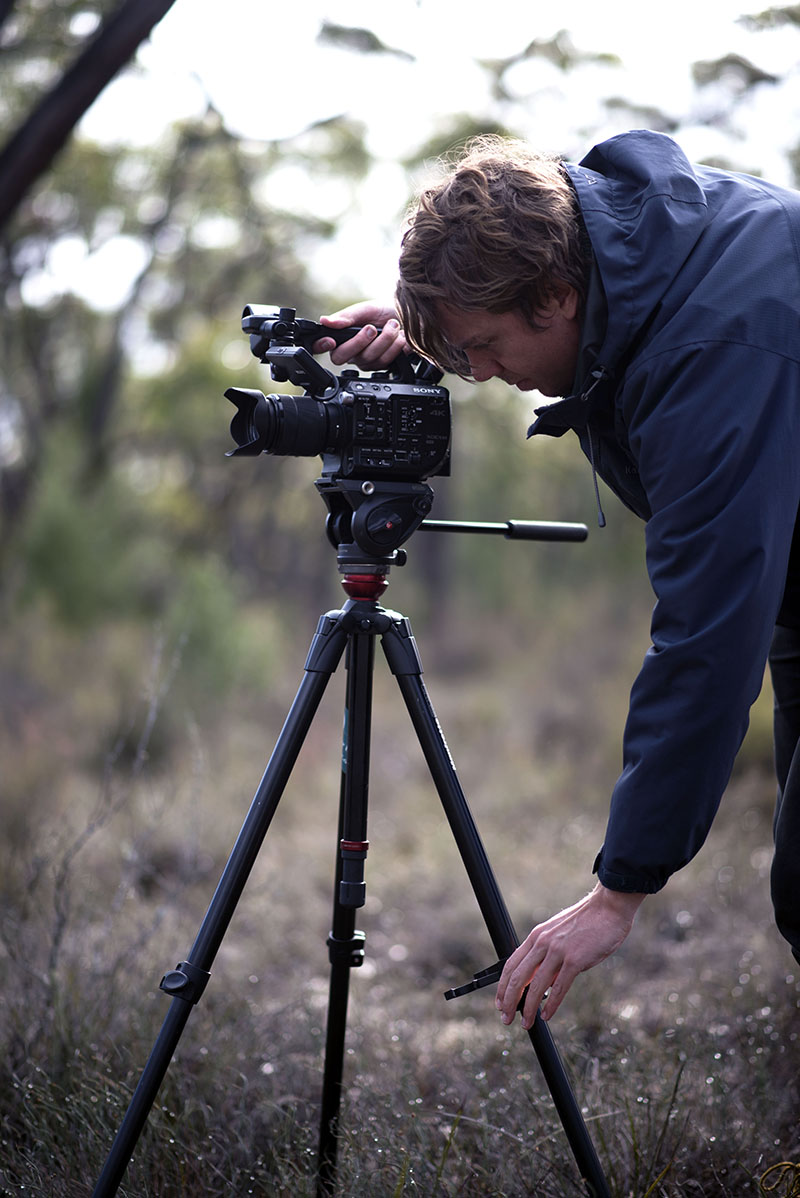
Michael our productions manager
© Remember The Wild
If we carry on with business as usual, then it’s going to be too late. What Issues would you want people to be more aware of and what keeps you hopeful?
I think we need to put “business as usual” in context for people. The status quo we’re currently experiencing is by no means ‘normal’ for humanity. This pace of life, this removal from nature on the daily; it is a modern deviation. What people need to understand is this:
They’re missing out.
Now, let’s be clear, we’ve had good reasons for distancing ourselves from nature. Being caught outside in the cold can be unpleasant and malaria is nothing to celebrate. But in out quest to lead the “good life”, or “live the dream”, we’ve over shot the mark. We’ve gone too far over the hump and lost sight of many of the wonderful, irreplaceable things nature has to offer us.
So here we are overworked, overcommitted, overstimulated, and overloaded with useless “information”, while being very much under the illusion that this is progress. FOMO is real they say – and how can it not be in a world where we are constantly being told we can do more, see more, be more and oh, by the way, all your ‘friends’ on Facebook are doing and seeing and being more right now AND YOU’RE NOT! – but maybe we have it for the wrong reasons…?
We should be concerned that we are missing out. We should be concerned that we are missing out on fresh air, sunshine, sand beneath our toes, and those unspeakable emotions you get when you see a truly stunning sunset. We’re missing out on time with our friends and family in wide open spaces, and the humbling feeling of harvesting your own vegetables. We’re missing out on getting caught in the wind and rain and feeling the soft challenge of nature as it taps us on the shoulder and reminds us that we are alive.
This “business as usual”, it’s not normal. It’s not healthy, and it’s not human. I believe people are starting to remember that fact, and that gives me hope.
Follow and read more from Remember The Wild:
https://www.rememberthewild.org.au/
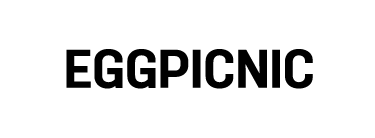
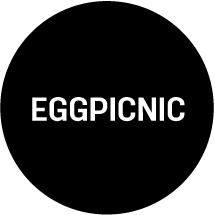
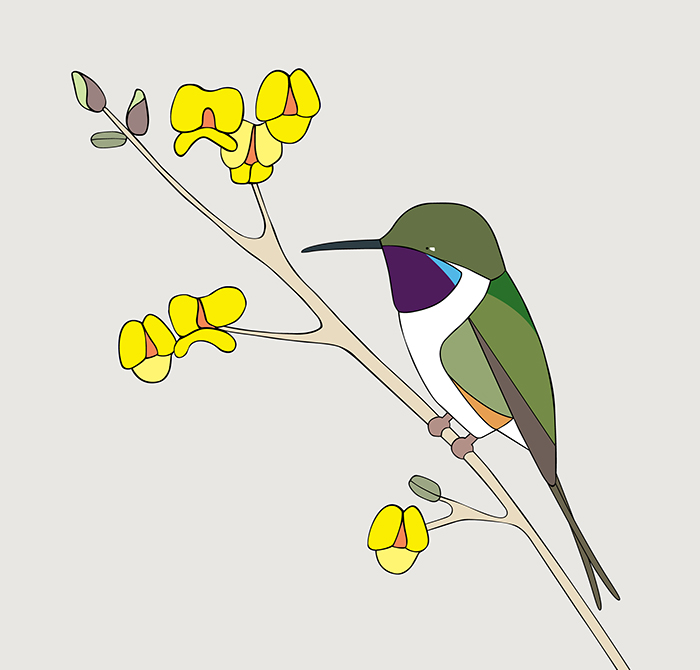
Sorry, the comment form is closed at this time.